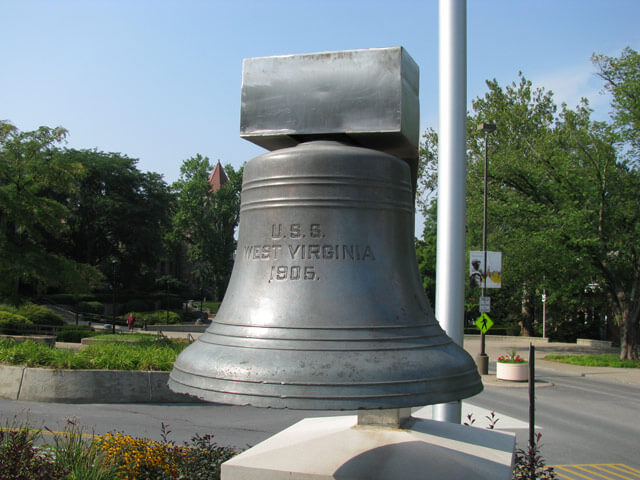Property tax is a form of tax imposed on real estate by state and local governments. It is used to fund various public services such as schools, road maintenance, and emergency services. If you own a property in Virginia, it is important to understand how property tax is calculated to effectively manage your finances.
The Virginia property tax rate is determined by the local government and varies by county. As of 2021, the average property tax rate in Virginia is 0.80%, which is lower than the national average of 1.07%. However, the exact tax rate for your property will depend on its assessed value and location.
To calculate your Virginia property tax, you will need to follow these steps:
- Determine the assessed value of your property, which is the estimated market value determined by the local government.
- Calculate the taxable value of your property by subtracting any exemptions or deductions.
- Determine the applicable tax rate for your property based on its location.
- Multiply the taxable value of your property by the tax rate to find your Virginia property tax.
There are various factors that can affect your Virginia property tax, including the value of your property, its location, and any tax exemptions you may qualify for.
If you want to get an estimate of your Virginia property tax, you can use an online property tax calculator. Simply enter the assessed value of your property and select the applicable tax rate, and the calculator will provide you with an estimated amount.
To lower your Virginia property tax, you can consider taking the following steps:
- Appeal the assessed value of your property if you believe it is too high.
- Take advantage of any tax exemptions you may qualify for, such as homeowner or senior citizen exemptions.
- Keep your property well-maintained, as properties in better condition may have a lower assessed value.
- Consider moving to a different area with lower tax rates if possible.
By understanding how Virginia property tax is calculated and utilizing available resources, you can effectively manage your property taxes and potentially reduce them.
Key Takeaways:
- Virginia property tax is a tax imposed on the value of real estate properties in the state.
- The Virginia property tax rate varies based on the assessed value of the property and the applicable tax rate.
- To calculate Virginia property tax, determine the assessed value, taxable value, applicable tax rate, and multiply them together.
What Is Virginia Property Tax?
Virginia property tax is a tax that individuals are required to pay on their real estate properties within the state. This annual tax is based on the assessed value of the property and is calculated by multiplying the assessed value by the local government’s tax rate.
The funds from Virginia property tax go towards supporting local services such as schools, roads, and public safety. It is crucial for property owners to have a thorough understanding of the property tax system in Virginia to ensure they are paying the correct amount of taxes.
What Is the Virginia Property Tax Rate?
The Virginia property tax rate varies depending on the location within the state. It is expressed as a percentage of the assessed value of the property. The tax rate is determined by local governing bodies, such as the county or city. To find out the specific tax rate for a property, individuals can check with their local government’s website or contact the local tax assessor’s office. It is important to note that the tax rate can change from year to year, so it is advisable to stay updated on any changes in the tax rate for a particular area.
How Is Virginia Property Tax Calculated?
One of the responsibilities of owning property in Virginia is paying property tax. But how exactly is this tax calculated? In this section, we will break down the process into four simple steps. First, we will discuss how to determine the assessed value of the property. Then, we will explain how to calculate the taxable value of the property. Next, we will discuss the applicable tax rate and how it is determined. Finally, we will put all the pieces together and show you how to calculate the Virginia property tax for any given year.
Step 1: Determine the Assessed Value of the Property
Determining the assessed value of a property is the first step in calculating Virginia property tax. Here is a step-by-step guide:
- Gather information: Collect relevant details about the property, such as size, location, and any improvements made.
- Research: Analyze recent sales of similar properties in the area to assess market value.
- Consult local government: Contact the local assessing office to understand their methodology and obtain any necessary forms.
- Fill out the assessment form: Provide accurate information about the property’s features and condition.
- Submit the form: File the assessment form by the designated deadline.
- Review of Assessment: The assessing office will review the information and determine the assessed value of the property.
Fact: In Virginia, assessed values are generally lower than market values to ensure fairness in property taxation.
Step 2: Calculate the Taxable Value of the Property
To calculate the taxable value of your property for Virginia property tax purposes, follow these steps:
- Determine the assessed value of the property, which is the value assigned by the local tax assessor.
- Subtract any applicable exemptions or deductions from the assessed value to arrive at the taxable value, as outlined in Step 2.
- Common exemptions include those for senior citizens, veterans, and disabled individuals.
- Apply the appropriate tax rate, which varies depending on the location and type of property.
- Multiply the taxable value by the tax rate to calculate the Virginia property tax.
Step 3: Determine the Applicable Tax Rate
To determine the applicable tax rate for Virginia property tax, follow these steps:
- Research: Consult the Virginia Department of Taxation or local tax authorities to obtain the current tax rate.
- Identify property classification: Different types of properties may have varying tax rates. Determine the classification of your property (e.g., residential, commercial, agricultural).
- Check for special tax districts: Some areas may have additional taxes imposed for specific purposes, such as school districts or community improvements.
- Calculate the tax rate: Multiply the applicable tax rate by the assessed value of your property to determine the amount of tax owed.
Step 4: Calculate the Virginia Property Tax
To calculate the Virginia property tax, follow these steps:
- Determine the assessed value of the property.
- Calculate the taxable value of the property.
- Determine the applicable tax rate.
- Calculate the Virginia property tax by multiplying the taxable value with the tax rate.
To reduce Virginia property tax, consider:
- Appealing the assessed value of your property.
- Take advantage of tax exemptions.
- Keep your property well-maintained.
- Consider moving to an area with lower tax rates.
What Are the Factors That Affect Virginia Property Tax?
Understanding the various factors that contribute to Virginia property tax is crucial for homeowners and real estate investors. In this section, we will discuss the three main factors that affect property tax in the state: property value, location, and tax exemptions. By delving into these sub-topics, we can gain a better understanding of how property tax is calculated and how it may vary based on different circumstances. So let’s dive in and explore the key factors that determine the amount of property tax one may owe in Virginia.
1. Property Value
The value of the property is a crucial factor in determining the amount of Virginia property tax. Here are the steps to calculate this value:
- Determine the assessed value of the property, which is the value assigned by the local government.
- Calculate the taxable value by applying any applicable deductions or exemptions to the assessed value.
- Determine the applicable tax rate, which is set by the local government.
- Calculate the Virginia property tax by multiplying the taxable value by the tax rate.
The higher the property value, the higher the tax amount will be. It’s important to keep this value in mind when considering ways to reduce property tax.
2. Location
When it comes to Virginia property tax, the location of the property plays a significant role in determining the tax amount. Here are the steps involved in considering the location factor:
- Research Tax Rates: Different areas in Virginia have varying tax rates. Check the local tax rates for the specific location of the property.
- County Assessments: Counties assess properties differently, leading to variations in tax rates. Understand how the county assesses properties to know the specific tax implications.
- Special Districts: Some areas may have additional taxes for special districts, such as school districts or fire districts. Be aware of any additional taxes that may apply to the property.
- Comparable Properties: Compare the tax rates of similar properties in the location to get an idea of the potential tax burden for the property.
- Future Developments: Consider any upcoming developments or changes in the area that could impact property taxes in the future.
3. Tax Exemptions
Tax exemptions can be a helpful tool in reducing the burden of Virginia property tax. To effectively utilize them, follow these steps:
- Research: Familiarize yourself with the various tax exemptions offered by the state of Virginia.
- Eligibility: Determine if you meet the requirements for any of the tax exemptions, such as those for veterans, disabled individuals, or senior citizens.
- Application: Submit the necessary documentation and application forms to the appropriate local government office.
- Verification: Provide any necessary evidence or proof to support your eligibility for the tax exemption.
- Review: The local government will review your application and make a determination on whether you qualify for the tax exemption.
- Adjustment: If approved, the amount of property tax will be adjusted to reflect the exemption, resulting in a lower tax liability.
How to Use a Virginia Property Tax Calculator?
If you own property in Virginia, it is crucial to understand how property taxes are calculated in order to properly budget and plan for your expenses. One helpful tool for this is a Virginia property tax calculator. In this section, we will guide you through the simple steps of using a property tax calculator. First, you will need to enter the assessed value of your property. Then, you can select the applicable tax rate based on your location. Finally, with just one click, you will receive an estimated amount for your Virginia property tax. Let’s dive in!
Step 1: Enter the Assessed Value of the Property
To calculate the Virginia property tax, you need to follow a few steps:
- Step 1: Input the assessed value of the property. This value is determined by the local government and represents the estimated market value of the property.
- Step 2: Choose the appropriate tax rate. The tax rate varies depending on the location and type of property.
- Step 3: Click calculate to obtain the estimated Virginia property tax. The calculator will multiply the assessed value by the tax rate to determine the amount owed.
By following these steps, you can easily determine the amount of property tax you need to pay in Virginia.
Step 2: Select the Applicable Tax Rate
To select the applicable tax rate for calculating Virginia property tax, follow these steps:
- Research the current tax rates: Check the local tax authority’s website or contact them directly for the latest tax rates in your area.
- Identify the property classification: Determine the category your property falls under, such as residential, commercial, or agricultural. Different classifications may have different tax rates, so it’s important to select the correct one.
- Consider any special tax districts: Some areas may have additional taxes for specific services like schools or fire departments. Determine if any special districts apply to your property and factor them into your calculations.
- Consult with a tax professional: If the tax rate selection process seems complex or if you require assistance, seek guidance from a tax professional who can provide accurate information based on your specific situation. They can help you navigate the process and ensure you select the correct tax rate for your property.
Step 3: Click Calculate to Get the Estimated Virginia Property Tax
To calculate the estimated Virginia property tax, follow these steps:
- Step 1: Enter the assessed value of the property.
- Step 2: Select the applicable tax rate.
- Step 3: Click on the “Calculate” button to receive an estimate of the Virginia property tax.
This process allows property owners to accurately determine their tax liability. By inputting the assessed value and choosing the appropriate tax rate, individuals can obtain a reliable estimate of their property tax amount. This information is crucial for budgeting and planning for tax payments. It is important to use an updated and trustworthy property tax calculator for accurate calculations.
What Are Some Tips for Reducing Virginia Property Tax?
As a property owner in Virginia, you may be wondering how to reduce your property tax burden. Luckily, there are several strategies you can use to potentially lower your tax bill. In this section, we will discuss some tips for reducing your Virginia property tax. From appealing the assessed value of your property to taking advantage of tax exemptions, we’ll explore different options that may help you save money. By the end, you’ll be equipped with the knowledge to make informed decisions and potentially lower your property tax in the future.
1. Appeal the Assessed Value of Your Property
To potentially lower your Virginia property tax burden, it may be beneficial to appeal the assessed value of your property. Here are the steps to follow:
- Research: Understand the appeal process and gather supporting evidence.
- Prepare: Document any discrepancies or errors in the property assessment.
- File: Submit a formal appeal to the local tax assessment office within the specified timeframe.
- Present: Attend the scheduled hearing and present your case with supporting evidence.
- Review: Review the decision and consider further appeals if necessary.
In addition to appealing the assessed value, you may also want to consider these suggestions to potentially reduce your Virginia property tax:
- Take advantage of available tax exemptions and credits.
- Maintain your property well to potentially increase its value.
- Consider relocating to an area with lower tax rates.
2. Take Advantage of Tax Exemptions
- Explore tax exemptions available in Virginia, including those for veterans, senior citizens, and disabled individuals.
- Determine if you meet the eligibility criteria for any of these exemptions.
- Collect the necessary documentation and evidence to support your exemption claim.
- Submit your application for exemption to the appropriate local government office.
- Follow up on the status of your application and provide any additional information requested.
Utilizing tax exemptions can significantly reduce your property tax burden in Virginia, giving you the opportunity to save more money.
3. Keep Your Property Well-Maintained
Keeping your property well-maintained is essential for reducing Virginia property tax. Follow these steps to ensure your property is in top condition:
- Regularly maintain the exterior of your property, including landscaping and necessary repairs.
- Address any issues inside your property promptly to keep it in good condition.
- Upgrade your property with energy-efficient features to potentially save on taxes.
- Keep documentation of all maintenance and repairs for potential tax deductions.
Fact: Well-maintained properties typically have higher values and can attract potential buyers, making them a wise investment.
4. Consider Moving to a Different Area with Lower Tax Rates
Moving to an area with lower tax rates can be a savvy strategy to reduce your property tax burden in Virginia. Here are some steps to consider:
- Research different areas: Look for locations within Virginia that have lower property tax rates.
- Compare tax rates: Compare the property tax rates of different areas to find the most favorable option.
- Consider other factors: Take into account other factors like cost of living, amenities, and proximity to work or schools.
- Plan your move: If you decide to relocate, plan your move carefully to minimize expenses and ensure a smooth transition.
Pro-tip: Seek advice from a real estate agent or tax professional who can offer valuable insights and guidance on finding an area with lower tax rates.
Frequently Asked Questions
How do I calculate my property tax for Tax Year 2024 in Virginia?
To calculate your property tax for Tax Year 2024, you will need to know the tax rate for your specific property’s tax district. This information can be found on your annual assessment notice or by using the Assessment Lookup website. Once you have the tax rate, simply multiply it by your property’s assessed value (based on the FY 2023 assessment notice) to calculate your property tax for Tax Year 2024.
What are the approved tax rates for Tax Year 2023 in Fairfax County, Virginia?
The approved tax rates for Tax Year 2023 in Fairfax County, Virginia can be found in the FY 2024 Adopted Budget. Not all rates apply to each parcel, so it is important to check the tax rate for your specific property’s tax district. The tax rates applicable to a property can also be found on the annual assessment notice or by using the Assessment Lookup website.
What is the base tax rate for Real Estate in Virginia for Tax Year 2024?
The base tax rate for Real Estate in Virginia for Tax Year 2024 is $1.095, $1.110, and $1.140 per $100 of assessed value. This rate is determined by the Fairfax County government and is subject to change each year. It is important to check the tax rate for your specific property’s tax district to calculate your property tax for Tax Year 2024.
What is the Commercial Transportation Tax District in Fairfax County, Virginia?
The Commercial Transportation Tax District was established by the 2007 Session of the Virginia General Assembly. This district allows localities within the Northern Virginia Transportation Authority (NVTA) to impose a property tax on certain commercial and industrial properties for transportation purposes. Fairfax County falls within the boundaries of NVTA and is authorized to separately classify certain commercial and industrial properties for this tax.
What is the tax rate for the Springfield Water #3 Fee (Service Charge) in Fairfax County, Virginia?
The tax rate for the Springfield Water #3 Fee (Service Charge) in Fairfax County, Virginia is $959 per parcel. This fee is imposed to cover the costs of operating and maintaining the water system in the Springfield area. This tax rate is subject to change each year and can be found on the annual assessment notice or by using the Assessment Lookup website.
What are the new sources of revenue for Virginia property taxes in Tax Year 2024?
Two new sources of revenue for Virginia property taxes in Tax Year 2024 are the Phase 1 and Phase 2 of the Dulles Rail Transportation Improvement District (commercial property only) and the Stormwater Service District. The Phase 1 and Phase 2 of the Dulles Rail Transportation Improvement District have tax rates of $0.090 and $0.180 per $100 of assessed value, respectively. The Stormwater Service District has a tax rate of $0.050 per $100 of assessed value. These rates are subject to change each year and can be found on the annual assessment notice or by using the Assessment Lookup website.
Dave is a seasoned real estate investor with over 12 years of experience in the industry. Specializing in single-family residential real estate, David’s strategic approach combines market analysis, financial acumen, and a deep understanding of urban development trends to maximize investment returns.










